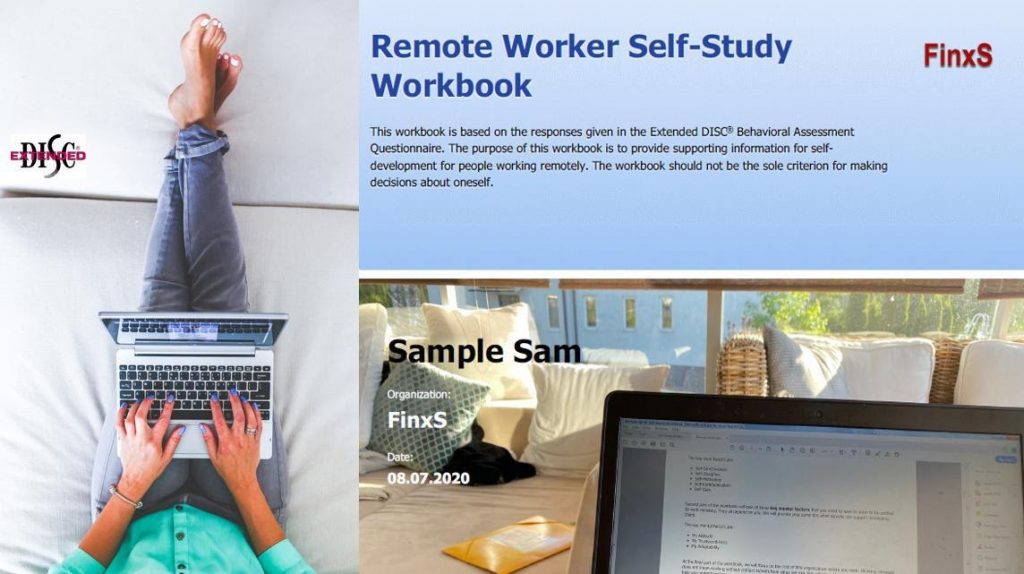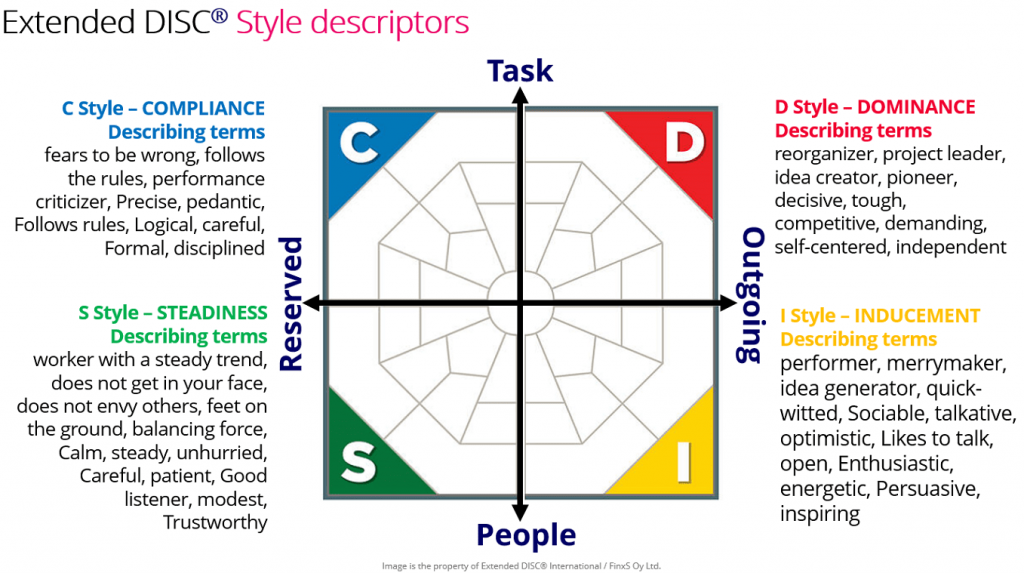Remote Worker Productivity Solutions
Working from home usually sounds ideal, but we have our own unique challenges and comfort areas when working remotely.
Working remotely comes with different situations and requirements from a conventional work environment. You schedule, organize, and manage your workday differently. How you communicate is different. You can’t just call a team huddle or spontaneously run to your colleague’s office to ask a question.
Remote Worker Self-Study Workbook
Who is it recommended for?
- Remote/virtual employees
- Virtual team members
- Managers of remote employees
- Remote Learning Students and Facilitators
Our Remote Worker Self-Study Workbook is designed for people working remotely. Its beneficial to employers, employees as well as students. The purpose is to help them create a work environment and processes that best support their strongest behavioural traits.

The Remote Worker Self-Study Workbook is a self-paced, self-guided workbook that uses your unique Extended DISC® Behavioural Analysis results to compare against the different key success factors and support needs of remote work. It is designed for people working remotely, it helps individuals create a work environment and processes that best support their behavioural style.
You’ll know how much support, attention and feedback each team member needs, and even get a good idea of which of your team members can handle the sometimes-isolating aspects of remote work.
The workbook contains 3 Main Sections:
The key work factors
- My DISC Style
- Self-Directiveness
- Self-Discipline
- Self-Motivation
- Self-Communication
- Self-Care
The key mental factors
- My Attitude
- My Trustworthiness
- My Adaptability
Key Communication Factor
- How To Communicate With You
- How To Communicate With Your Team
- How To Initiate Communication With Others

This Behavioural DNA Diagnostic is a powerful tool to help your candidates create a work environment and processes that best support their strongest behavioural traits. We have both physical as well as psychological distance to the rest of the organization. Communication with others is different.
The prerequisite to this workbook is the My Self-Study Workbook. It describes the DISC Theory and behavioural models in detail, providing you with a much deeper understanding of why certain situations feel more comfortable for you and why you generally succeed better in certain types of situations.
Since each individual behavioural style needs different support and will value different aspects of remote work; knowing what to offer is essential if you want to have a successful remote work program.
Maximizing The Benefits From Remote Work
INCREASED PRODUCTIVITY
Office workers spent an average of 66 minutes per day discussing nonwork topics, while remote employees only spent 29 minutes doing the same. According to one study, remote employees work 1.4 more days per month than their office-based counterparts, resulting in more than three additional weeks of work per year.
EMPLOYEE RETENTION
Almost 30% of remote workers said they would quit if they were not allowed to continue remote work, according to recent research from LiveCareer. Another two-thirds said they prefer to only work for companies that offer remote work options..
EMPLOYEE ENGAGEMENT
As in life, people respond to different environments in unique ways. There is no one-size fits all answer to the question of whether a given team member will be engaged in a remote working environment. That is why we strongly recommend the use of the Extended DISC® Remote Worker assessment.
TEAM MEMBER PREPARATION
Organizations who recognize that there are significant differences that remote workers will encounter and address them get better results.
Prepare team members to navigate the new experience as it relates to their unique behavioural preferences.
TEAM LEADER CHALLENGES
We have encountered concerns from Team Leaders who feared that they would not be able to keep their team motivated in a remote working environment. The leadership style of Team Leaders is a determining factor of performance results from remote working teams.
